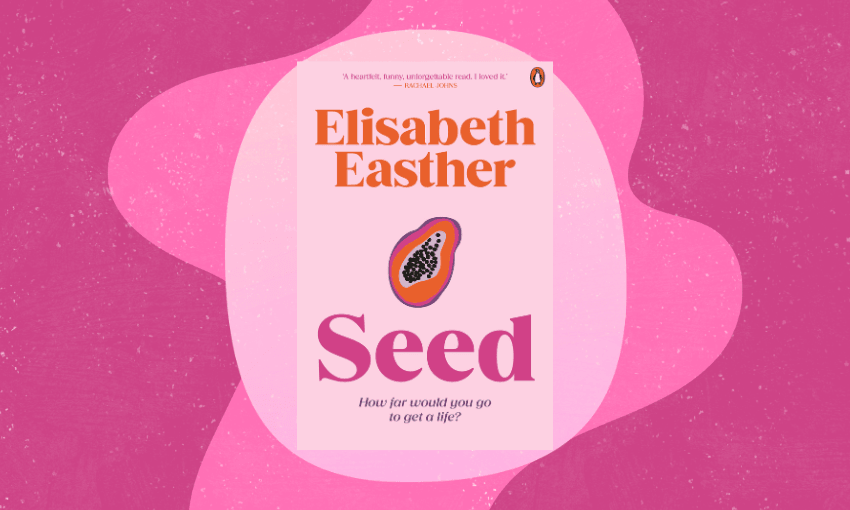Breton Dukes’ latest short story collection is a thrilling, surgical examination into the everyday tragedies of domestic New Zealand.
The New Zealand man is a topic that is well examined by pretty much every art form we’ve ever had. Hell, our most famous stereotype is “the man alone”. The loner (usually a straight, white loner) who is separated from society, usually literally but often psychologically. He’s moody, brooding, and often called things like John Hobson (The Quiet Earth), Smith (Sleeping Dogs) or Johnson (the book actually called Man Alone). He’s someone you read about, but wouldn’t necessarily make eye contact with at a bar.
What Sort of Man is, thankfully, not about men alone. But it exists in the same realm. Breton Dukes’ third collection of stories (following Bird North and Empty Bones) focuses on nine people who have been, whether in one sudden life event, like the birth of a child or conversion to a new religion, displaced from those around them. They’re isolated, but often not physically. Each story, be it focusing on two elderly men who invest slightly too much in a casual swimming meet-up or a man caught watching porn on his work computer, gives us a snapshot of a character at a specific point of their unravelling, whether they know it or not. These characters are also driven by compulsion, sometimes very simple (read: uncomfortably relatable) like sex or hunger, and sometimes more complex, like the seemingly unattainable goal of being a good father.
Throughout, Dukes shows a stunning attention to detail and an enviable skill in turning the most domestic things (a run, an encounter with a dog in a park, a trip to the zoo) into the stuff of thrillers; everyday anxieties turn into Tom Clancy thrillers, in the best possible way. He also has a sense of place – especially Dunedin, where most of the stories are set – that emphasises the moody, constantly damp feeling of the city. Aotearoa’s sunshine with Edinburgh’s hangover.
The most evocative and compelling story here is ‘Bullfighter’, which is one of three stories in the collection to feature a woman, Michelle, as a point-of-view character. Dukes toes the line between detail and misery porn in this story, where he describes a young couple – she a Lotto store worker, he a checkout operator at Countdown – and their attempt to stay afloat. It’s gruelling stuff. Take this paragraph opener:
“Michelle wakes hungry. No lunch yesterday, no tea. The pillow her face is on stinks. The mattress feels sunk and damp like the cupped palm of somebody’s sweaty hand. She rolls onto her side and air shifts up from under the duvet. She stinks too.”
This kind of detail, in this story, is a double-edged sword. It locates us in the character’s situation, immediately and viscerally, but a few times Dukes lingers on details past the point of comprehension and into the realm of tautology – the passage above makes its mark by the third sentence, by the fifth, the details are less illustrative and more tracing over the same lines.
It’s a minor quibble to make, especially when Dukes turns that eye for detail to action. When Michelle inevitably, tragically, returns to the pokie machines, convincing herself this is how to make the most of what little money she has, Dukes captures the thrill of winning and losing that comes from this kind of gambling. It’s like reading a report of the most depressing heist ever:
“She looks at the flashing jacks then presses GAMBLE, setting a single playing card whirling against a glittering black background, blinking first hearts and then clubs. She shifts her forefinger to hover RED, but then shifts back and taps BLACK. It wins. Now she’s got 200 credits. Adrenalin surges, causing her breathing to change and her feet to move a little on the stool’s low rail. GAMBLE. This time, quick as, she hits BLACK.”
Dukes is as attuned to the inner lives of his characters as he is to their everyday lives. Evan, the central character of the titular story, is a care worker for an autistic man. He is also juggling being a new father, and his wife returning to work. He’s struggling with the idea of being a care worker and while it’s never explicitly stated in the story, there’s the clear implication that he sees this as a feminine, emasculating role.
He says, to himself, towards the end of the story: “Could this be his job? Going around helping people in need?” like he’s suggesting that he go into space and fight aliens, it’s that ludicrous. Dukes particularly excels at these resolutions, subtly connecting dots for the reader that his characters can’t or simply won’t. All of his protagonists are displaced, whether from society or from their own idea of themselves, and the way he hones in on the tiny tragedies that these displacements have on our lives is quietly devastating.
What Sort of Man doesn’t break down the man alone archetype, it absolutely can’t, but it widens that archetype. We’re all a product of our circumstances and expectations; both expectations we hold for our own life and those other people have for us. We’re all alone in some way, even when we’re together. Life is a series of isolations, now more than ever, and the way that Dukes captures, with photo-perfect detail, the soul of a person in isolation, is not just excellent, but relevant. We’re not at our most alone when we’re not around other people, we’re at our most alone when we can’t even sit with ourselves.
What Sort of Man by Breton Dukes (Victoria University Press, $30) can be ordered from Unity Books.



